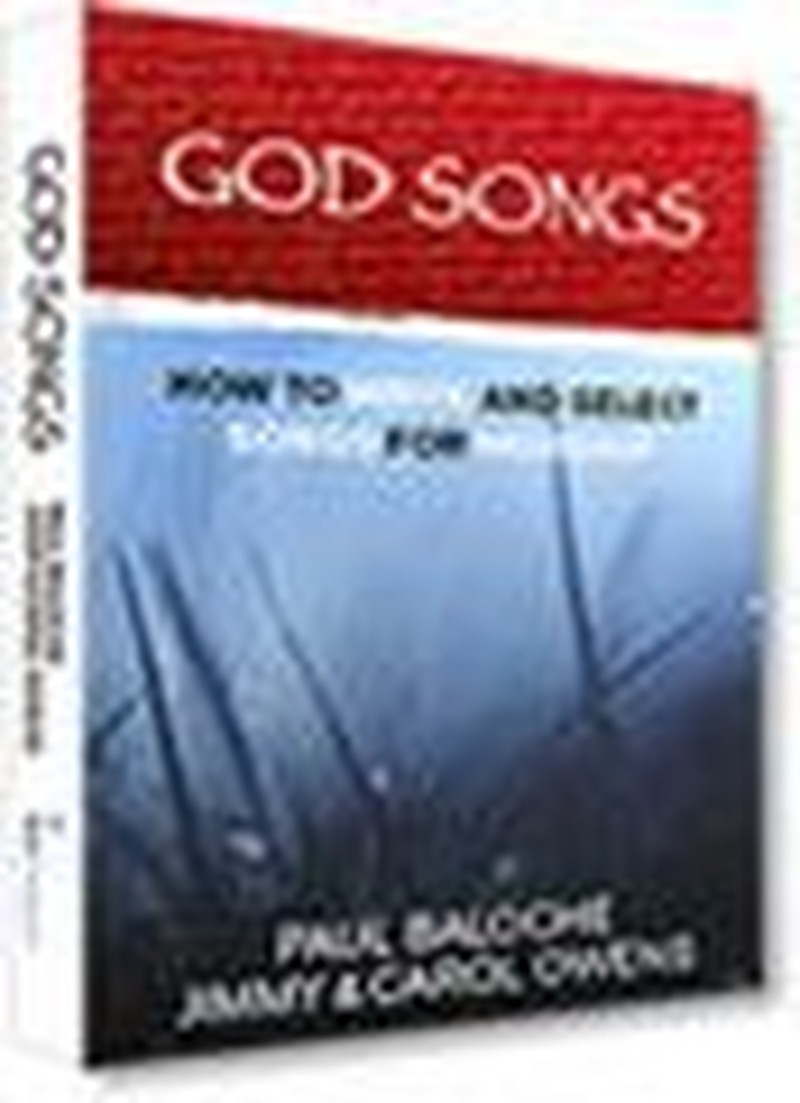God Songs: Music That Ministers, Part III
- Paul Baloche, Jimmy & Carol Owens Contributing Writers
- Published Aug 09, 2005

WORSHIP FOR KIDS
In writing songs for kids to sing, the basic principles are the same, but there are certain other things to consider, depending on the age of the children we expect to sing our songs.
1. Range. Little kids, say three to five years old, have limited ranges. Keep the songs within a range of about middle C up to A or B. Even "Jesus Loves Me, This I Know" is a bit of a stretch for little kids. Some of them do "creative things" with the melody simply because they don't have that octave range the song requires.
- As they get older their range increases quickly. First-to-third graders can sing from C to C (with maybe a stretch on short notes up to D).
- By the time they are in grades 4 to 6, many kids have a broader range than they will have as adults, say from low Bb to high F, even G. But they need to be trained and vocalized to use the head tones on the high end.
- Junior high is the critical age, especially for boys. As they reach puberty they don't know what to expect their voices to do. They may crack and croak, embarrassing them to the point where they don't want to sing. This is the hardest age to work with.
- High school kids, properly trained, can sing some fairly adult stuff.
Buy God Songs from Songs4worship.com
2. Melodies. Try to keep little children's melodies especially simple and repetitive, hooky and easy to memorize.
3. Lyrics. Since little ones can't read, the lyrics shouldn't be too long for them to memorize. They might forget the words in performance.
4. Vocabulary. Lyrically, you want to write thins a child would say, the way a child would say them. Check your lyrics for words too sophisticated for the age you're writing for.
5. Concepts. Don't get too abstract or symbolic with kids either. "Jesus loves me, this I know" is fine but "His heart burns for me" or "I am swallowed up in His love" or some other such transcendent concept is beyond the ability of most kids to comprehend. Nor would it be believable coming from them.
Don't have little kids sing things like, "I was sinking deep in sin." (A three-year old?) Or "Jesus set me free." Free from what? Most little kids have no concept of needing to be set free from anything yet.
6. Theology. Try not to get too theological with little kids. An elementary school child doesn't need to comprehend all the details of the atonement, for example. A four-year old can understand that she has a naughty heart and Jesus will hear her prayers and come into her life and forgive her and help her be good. But she doesn't need to be burdened with the traumatic concept that it was because she was naughty that Jesus had to suffer and die on the cross. When a little heart is open to the Lord, the Holy Spirit will reveal deeper aspects of truth as the child is able to grasp and to bear it.
7. Difficulty level. Kids are capable of a lot more than we sometimes expect of them. Rhythmically, they can do the most complex syncopation if they're properly directed. Maybe they can't read, but they can sing back to you almost anything they can hear.
• A good way to teach them is to sing the phrase to them, them have them say the words over and over rhythmically until they can all say the line exactly together, with all the accents and inflections in place. Only then do you have them sing the line together a few times until it's clean.
• When they get a little older, you can add another step to the process. First have them clap the rhythm of the words together, over and over, until the claps are together, then have them say the words, then sing them. This may take some experimentation, through, to see if your kids are ready for the clapping part; they may not be that coordinated yet. (This works for adult vocal groups too. It's fun, and it saves wear and tear on the voices.)
8. Musical quality. Kids deserve better music than a lot of ditties that are written for them. Nowadays before they're out of the nursery, they're already out of nursery rhymes and enjoying a higher level of music than we did as kids, including the wonderful symphonic music in TV reruns of E.T. and the like. So we don't need to write down to children too much.
9. Remember your audience. You're writing not only for kids to sing, but for adults to enjoy hearing them sing. The kids are being taught and stretched and blessed, but don't forget the doting parents who love hearing and seeing their adorable little ones perform.
If little kids are anything, they are cute. So write things that teach and nurture them, but also write things for them to sing and say. Writing for kids can be fun, as well as rewarding, both for us and for them.
EXTRA TECHNIQUES TO CONSIDER
Lining. Here's a technique you might want to try in your writing: it's called lining. It's very effective in situations where the congregation doesn't have access to the words and music. It has been used in many cultures, from ancient times to today, in bible times, in the early American colonies where they had no hymnbooks, in tribal cultures with no written language. The leader sings a line at a time and the singers sing it after him or her. Sounds boring? Wait till you hear it done with a good solid groove. Think of the chant the Marines use in their marching drills, where the drill instructor shout-sings "I don't know but I've been told..." and the troops sing each line after him. We can think of a few worship songs done that way: "Victory Chant" ("Hail, Jesus, You're My King!") and the verse of "You're Worthy of My Praise" and "Revival Fire Fall." There's room for more. Here is the form, used in Jimmy and Carol's "The Lord Rules!" from Heal Our Land.
The Lord rules (The Lord rules)
In power and might (In power and might)
The Lord rules (The Lord rules)
In glory and light (in glory and light)
In majesty (majesty) honor (honor)
Glory (glory) power (power)
The Lord rules (The Lord rules)
For ever! (for ever!) For ever! (for ever!)
And our God rules (And our God rules)
In the kingdom of men (In the kingdom of men)
And His is the power (And His is the power)
To raise up (To raise up)
To pull down (To pull down)
For He is the Lord (For He is the Lord)
Of all nations! (of all nations!)
(Shout) God rules! (God rules!) God rules! (God rules!)
Call and response. A similar device called call and response is found in Psalm 136, in which the leader sings different words to each line but is answered each time by the congregation, with the same words, "His love endures forever." Chris Tomlin's "Forever" is based on this scripture. Jamie Owens Collins also used this device in "The Battle Belongs to the Lord."
Verse 1
In heavenly armor we'll enter the land
The battle belongs to the Lord
No weapon that's fashioned against us will stand
The battle belongs to the Lord
Chorus
We sing glory, honor
Power and strength to the Lord
We sing glory, honor
Power and strength to the Lord!
Verse 2
When the power of darkness comes in like a flood
The battle belongs to the Lord
He's raised up a standard, the power of His blood
The battle belongs to the Lord
Verse 3
When the enemy presses in hard do not fear
The battle belongs to the Lord
Take courage my friend, your redemption is near
The battle belongs to the Lord
II Corinthians 10:4
The weapons of our warfare are not physical, but they are mighty before God for the overthrow of strongholds.
God knows that, in this
chaotic world,
we need
every
means
of victory
we can find.
God has provided what we need:
The saving blood of the cross
The power of His name
The sword of His Spirit
And the shield of faith.
These assure us that
The battle is
not really
ours.
It is
His.
And He is right there,
armed and ready.
Used with permission from God Songs: How to Write and Select Songs for Worship by Paul Baloche and Jimmy and Carol Owens. www.leadworship.com




















